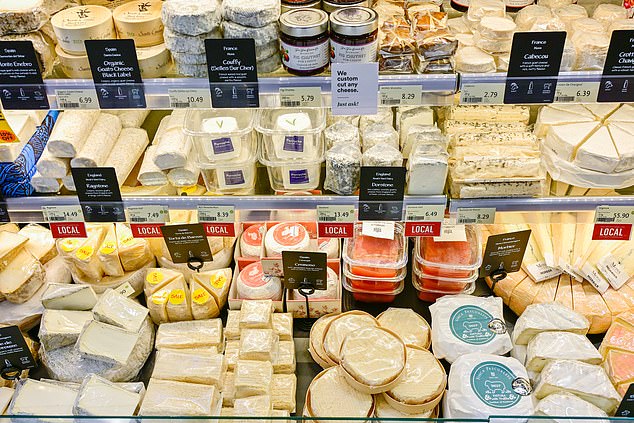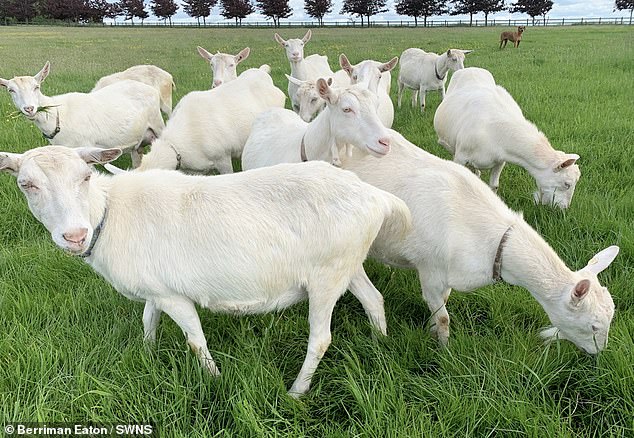Twenty five people have been infected and two have died following an outbreak of listeria linked to soft cheese supplied by a French manufacturer.
Whilst France has seen the highest number of cases, after 21 people became seriously unwell, European health officials have warned the disease could have spread to the UK.
The European Centre for Disease Prevention and Control (ECDC) suspect pasteurised soft cow’s and goat’s milk cheeses supplied by a company called Chavegrand to be the source of the outbreak of the diarrhoea-causing bug.
Chavegrand have now recalled all batches of cheese produced before 23 June 2025, but warns that the product was sold under different commercial brands.
The affected dairy products can be identified by the health mark FR 23.117.001.
Health officials have warned that the potentially contaminated products could have been distributed to around 30 countries including Belgium, Denmark, the Netherlands, Switzerland and the UK.
The ECDC have confirmed 21 cases in France alone, including two deaths, between December 2024 and June 2025.
The majority of these cases have occurred since June this year.

The ECDC suspect the outbreak was spread via contaminated dairy products supplied by one French manufacturer

Patients who were infected said they had eaten pasteurised goat’s or cow’s milk cheese before becoming sick
The patients, 11 of which were women, were between 34 and 95, according to the health watchdog.
Belgium, Denmark, the Netherlands and Norway have also recorded four confirmed cases between April and July this year.
Patients from Belgium, Denmark and the Netherlands all reported eating pasteurized soft cheese before becoming unwell.
Health officials, led by Santé Publique France and the National Listeria Reference Centre of Instiuit Pasteur, are still probing the outbreak to determine whether any other sources could be to blame.
The ECDC have assured members of the public that the contamination of pasteurized soft cheese is a rare event, and is unlikely to harm people who are fit and healthy.
‘For the population in good general health status, the overall risk is estimated to be very low,’ it stated.
‘Given the long incubation time of listeriosis more vulnerable people such as pregnant women, elderly people and people with immune deficiency or underlying health conditions should pay attention to signs like fever or severe headache and seek medical advice without delay’.
Listeriosis is a serious infection usually caused by eating food contaminated with the bacterium listeria monocytogenes.

Those who eat food containing listeria develop an infection called listeriosis, which can cause a fever, aches and pains, chills, nausea, sickness and diarrhoea
Produce contaminated with the bacterium may not look or smell spoiled, but can still cause serious and sometimes fatal infections.
As such, the ECDC advises anyone who has eaten cheese and developed symptoms to contact their GP and tell them about the possible listeria exposure.
In most cases, listeria poisoning is similar to the flu, with common symptoms including high temperature, muscles aches and pains, chills, nausea and vomiting.
Usually symptoms improve after a few days.
However, listeriosis poses a particular threat to the elderly, pregnant women and babies.
In rarer cases the infection can be more severe, causing life-threatening complications such as meningitis.
Many foods can harbour the harmful bacteria, but it is usually found in unpasteurised milk, soft cheeses and ready-to-eat foods, such as pre-packed salads and sandwiches.
Listeria is also widespread in the environment and can be found in raw food and soil, and in the droppings of many mammals, birds and fish.
According to the latest UKHSA data, a total of 179 cases of listeriosis were reported in England and Wales in 2024.
Some 28 deaths were recorded, among non-pregnancy associated cases, of which 9 had listeriosis recorded as a cause of death on the death certificate.
In England, London has the highest levels of infection.
Seven outbreaks in total were investigated including a national wave linked to various food products including smoked fish, chocolate and strawberry mousse and pre-packed sandwiches.
Meanwhile in the US, the Centres for Disease Control and Prevention estimate that around 1,600 people get listeriosis each year.

Dining and Cooking